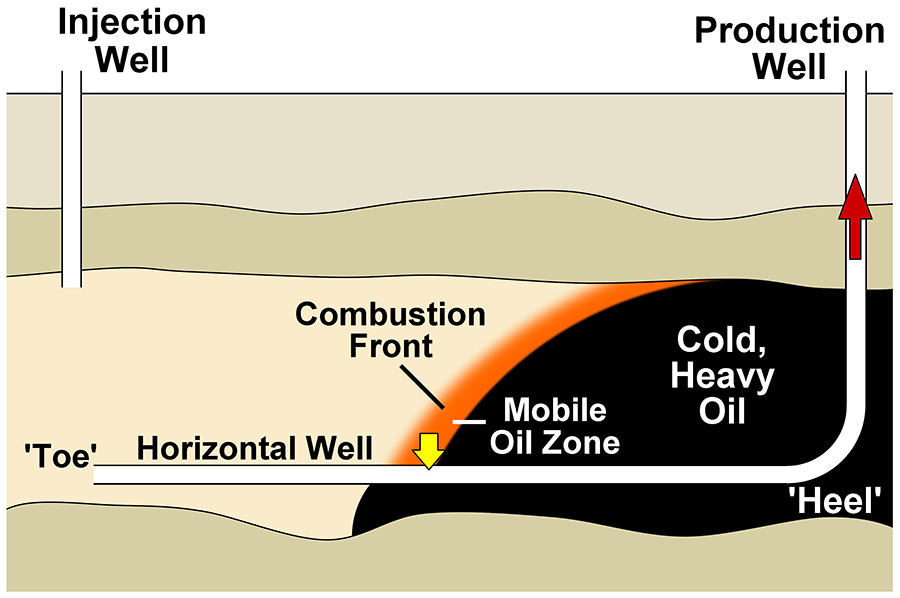Catalysis and Chemical Reaction Engineering lie at the core of many chemical and energy conversion processes. Our expertise ranges from preparation of tailored catalysts and adsorbents through to reactor design and optimisation for industry-specific applications.
Recent focus has emerged on the energy sector, including development and modelling of carbon capture techniques, and on extraction and upgrading of heavy oils. Toe-to-Heel Air Injection and Catalytic Upgrading Process In-situ (THAI-CAPRI)were initially developed in Canada and at the University of Bath, and trialled by Petrobank Energy and Resources Inc and Touchstone Exploration Inc. A small fraction of the oil is combusted, generating heat which mobilises the oil to flow towards the horizontal well. Upgrading occurs via thermal cracking, and catalytic cracking in the mobile oil zone. Since 2008 we have been researching at Birmingham how to get the best performance from the in-situ catalyst, for example via gravel packed bed, once-through nanoparticle or augmenting the heating of the well using induction heating technologies. Training of PhD students in heavy oil extraction technologies occurs through our membership of the NERC CDT in Oil and Gas.  We are also part of the EPSRC CDT in Carbon Capture and Storage and Cleaner Fossil Energy. Our research in Carbon Capture includes the development of advanced adsorbents such as amine-modified activated carbons, and simulation of carbon capture processes based on pressure swing adsorption, which will enable us to estimate the energy penalty of installing them at power plants for pre- and post-combustion capture.
We are also part of the EPSRC CDT in Carbon Capture and Storage and Cleaner Fossil Energy. Our research in Carbon Capture includes the development of advanced adsorbents such as amine-modified activated carbons, and simulation of carbon capture processes based on pressure swing adsorption, which will enable us to estimate the energy penalty of installing them at power plants for pre- and post-combustion capture.
Studies of catalysis include the preparation and testing of novel catalytic materials, ranging from collaboration with Professor Lynne Macaskie in the School of Biosciences on the development of precious metals supported on bacteria, through to tailored hydrotalcite clays. We study a range of reactions including hydrogenation and oxidations, and more recently valorisation of chemicals derived from sugars as bio-based replacements for chemicals that would normally be manufactured from fossil fuels. We are working with the UK Catalysis Hub as a focus for collaboration on these activities.
Our research also encompasses recycling of polylactic acid polymers via catalytic degradation and efficient separation. Our partners at the University of Bath in the group of Dr Matthew Jones are developing Zn based catalysts which are highly effective for deconstructing biopolymers and we are scaling up and investigating the kinetics and process optimisation, with a view to creating an industrially feasible process. This will create a new route for remanufacturing valuable molecules from waste packaging such as drinking cups.
Current EPSRC Projects
• Novel Membrane Catalytic Reactor for Waste Polylactic Acid Recycling and Valorisation
• Electromagnetically-assisted Catalytic-upgrading of Heavy Oil (ECHO)
Contact
Prof. Joe Wood